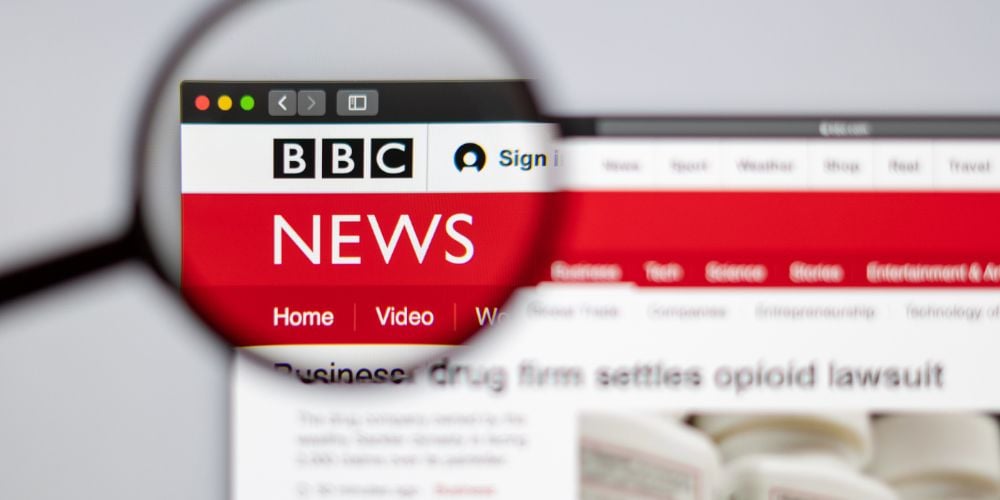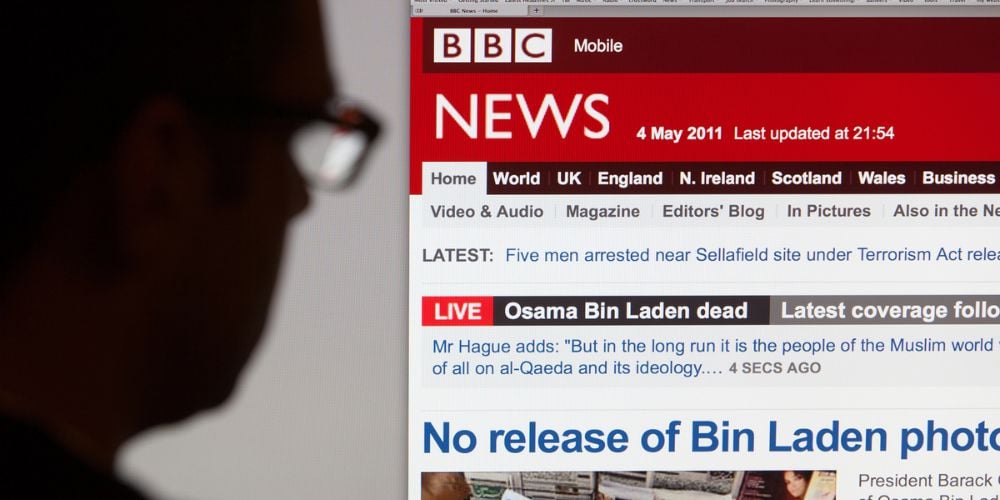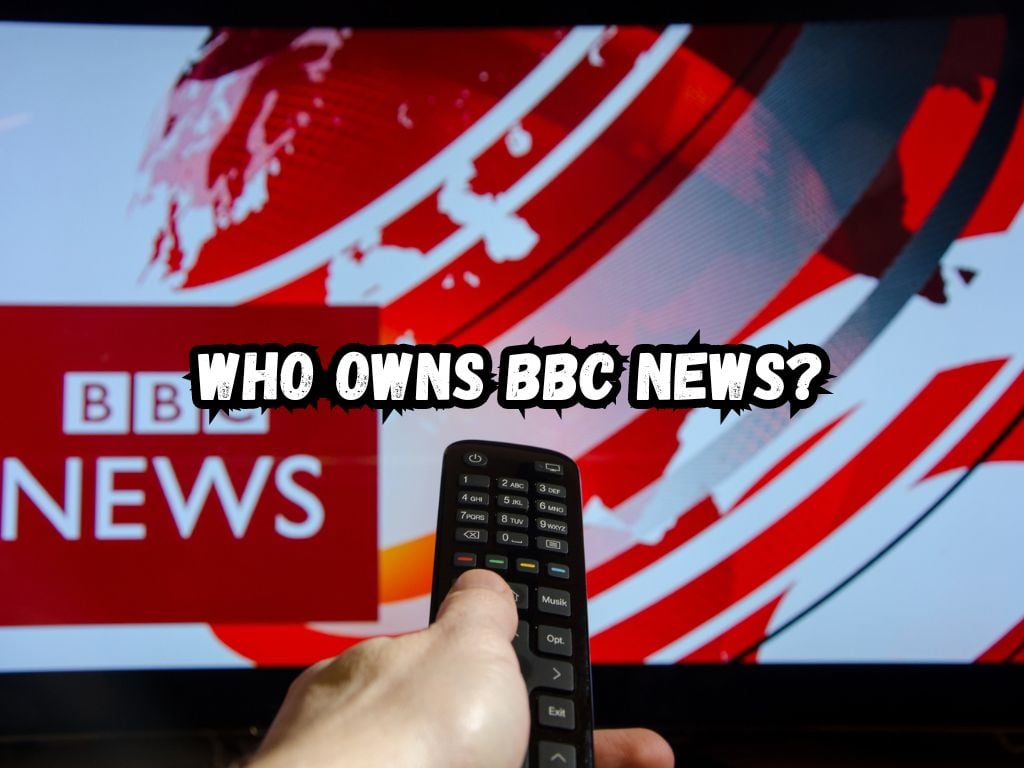BBC News is one of the most renowned and respected news organizations globally. Its role as a public service broadcaster is crucial in providing accurate and impartial information to the public.
To truly understand the workings of BBC News, it is important to delve into its ownership and governance.
This comprehensive guide aims to shed light on who owns BBC News, funding, and the independence of BBC News.
Overview of the British Broadcasting Corporation (BBC)
The British Broadcasting Corporation, commonly known as the BBC, was established in 1922. It emerged as a public service broadcaster, serving the public interest through its various platforms, including television, radio, and digital media.
The BBC’s mission is to inform, educate, and entertain audiences while maintaining high journalistic standards.

Who Owns BBC News? Ownership Structure of BBC News
The ownership of BBC News is unique, primarily due to its status as a public corporation.
The governance structure consists of three key entities: the BBC Trust/Board, the Executive Committee, and the Director-General.
The BBC Trust/Board
The BBC Trust/Board is responsible for overseeing the BBC’s activities, ensuring that it fulfills its public service remit.
Comprising non-executive directors, it plays a pivotal role in safeguarding the BBC’s independence and impartiality.
The Executive Committee
The Executive Committee consists of senior executives responsible for the day-to-day operations of the BBC.
They work closely with the Director-General, who acts as the organization’s CEO, providing strategic guidance and leading BBC News.
Funding of BBC News
BBC News is primarily funded through the license fee system, which allows the organization to operate independently from political and commercial influences.
The license fee is set by the government and requires households in the United Kingdom that watch live television or use the BBC iPlayer to pay an annual fee. This system ensures that the BBC can provide diverse programming while safeguarding its impartiality.
The funding model has faced criticism and debate. Some suggest that the license fee is outdated, as it does not cover digital services such as catch-up television. There have been calls for alternative funding models, including subscription-based services or a household levy.
BBC News as an Independent News Outlet
Editorial independence is a cornerstone principle of BBC News. The organization prides itself on providing balanced and impartial reporting, ensuring that news remains separate from political, commercial, or any vested interests.
Journalists and editors within the BBC play a crucial role in upholding these editorial standards.While BBC News strives for impartiality, it’s essential to acknowledge that the perception of bias can arise from personal perspectives.
However, the organization maintains rigorous editorial guidelines and has mechanisms in place to address any potential breaches of impartiality.
Misconceptions about BBC News Ownership
There are various misconceptions surrounding the ownership of BBC News. One common misconception is that the BBC is wholly owned by the British government.
However, while the BBC operates under a Royal Charter, it is independent of direct government control.
Another myth is that private investors can acquire ownership of the BBC. In reality, the BBC’s public corporation status prevents it from being sold or owned by private entities.
External Influence on BBC News
As a public service broadcaster, the BBC maintains relationships with the British government. However, it is essential to understand that these relationships are separate from ownership control.
The BBC maintains its independence and impartiality, ensuring that it does not succumb to political pressure.
The regulatory frameworks, including the BBC Trust/Board, play a crucial role in ensuring accountability and independence. They monitor the BBC’s activities and address any concerns relating to governance, ownership, and editorial standards.
Key Figures in BBC News Leadership
BBC News Leadership
The leadership of BBC News plays a crucial role in guiding the organization and shaping its direction.
At the helm of BBC News is the CEO of news and current affairs, who holds a pivotal role in overseeing the news division. They are responsible for ensuring the delivery of accurate, impartial, and high-quality journalism.

Key Responsibilities of the CEO
The CEO of news and current affairs is responsible for setting the strategic direction of BBC News. They oversee the management of resources, including staffing, budgets, and technology, to ensure the smooth and efficient operation of the news division.
They work closely with senior executives and editors to uphold the BBC’s reputation for quality journalism.
Previous CEOs and Their Contributions
Previous CEOs of BBC News have played significant roles in transforming the organization and adapting to the evolving media landscape. They have steered BBC News through technological advancements, changing audience preferences, and emerging challenges.
Notable former CEOs include individuals like Mark Thompson, who served from 2004 to 2012. Thompson focused on digital expansion, developing the BBC iPlayer, and enhancing online news services. Under his leadership, BBC News expanded its global reach and engagement.
Another notable former CEO is Tony Hall, who served from 2013 to 2020. Hall spearheaded initiatives to enhance diversity and representation within the BBC, championing inclusivity and ensuring a broader range of voices in news reporting.
These previous leaders have helped shape BBC News into the globally recognized and respected news organization it is today, upholding its commitment to impartiality, accuracy, and public service broadcasting.
Future Leadership of BBC News
The appointment of the CEO of news and current affairs is critical for the future trajectory of BBC News.
This leader will be tasked with navigating the ever-changing media landscape, ensuring the organization continues to provide trusted and reliable news, adapting to emerging technologies and audience demands.
The CEO will also tackle new challenges, such as disinformation and polarization, working to maintain the BBC’s reputation as a credible and trusted source for news.
They will play a pivotal role in upholding the high journalistic standards of BBC News and ensuring its relevance in the digital age.
In conclusion, the leadership of BBC News, particularly the CEO of news and current affairs, shapes the organization’s direction, strategies, and response to the evolving media landscape.
Previous CEOs have made significant contributions, and the future leader will continue to guide BBC News in delivering high-quality, impartial, and trusted news to audiences worldwide.
Frequently Asked Questions
Is the BBC owned by the government?
No, the BBC operates independently of the government. Although it operates under a Royal Charter, the BBC is considered a public corporation.
Who currently owns the BBC News Channel?
BBC News is owned by the British public, as it operates as a public broadcaster funded by the license fee paid by households.
Can the BBC be sold to private investors?
No, the BBC’s public corporation status prevents it from being sold or owned by private investors.
What is the full form of BBC?
The acronym BBC stands for the British Broadcasting Corporation.
How is BBC News funded?
BBC News is primarily funded through the license fee system, which is a mandatory annual fee paid by households in the United Kingdom that watch live television or use the BBC iPlayer.
Conclusion
Understanding the ownership and governance of BBC News is crucial for appreciating its role as a public service broadcaster.
With its unique ownership structure, funding model, and commitment to editorial independence, BBC News ensures high-quality journalism and impartial reporting.
By demystifying common misconceptions and shedding light on its governance, we can better appreciate the invaluable contributions of BBC News in providing accurate and reliable information to audiences worldwide.


 Tags:
Tags:










